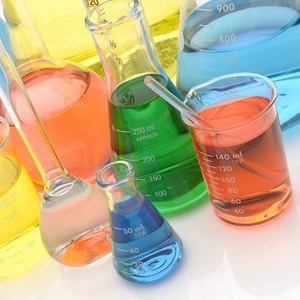Calysta demonstrates conversion of methane to lactic acid




June 20, 2014
BY Calysta Inc.
Calysta Inc. recently announced it has successfully fermented methane into lactic acid under a research collaboration with NatureWorks. Lactic acid is the building block for NatureWorks Ingeo lactide intermediates and polymers used in consumer and industrial products worldwide.
The joint development program, started in June 2013 between Calysta and NatureWorks, is focused on creation of a commercially viable methane-to-lactic-acid process. The key aims are providing a structurally simplified, lower cost Ingeo production platform and diversifying NatureWorks’ feedstock portfolio.
Advertisement
Advertisement
“This important milestone was achieved ahead of schedule, and demonstrates the capability of Calysta’s proprietary Biological Gas-to-Chemicals synthetic biology platform to create new manufacturing pathways using methane as an advantaged and sustainable feedstock,” said Alan Shaw, president and CEO of Calysta. “Calysta offers NatureWorks innovative biological tools to activate a broader array of greenhouse gas feedstocks supporting NatureWorks’ commitment to feedstock diversification.”
A greenhouse gas approximately 20 times more harmful than carbon dioxide, methane is generated by the natural decomposition of plant materials and is a component of natural gas. Methane is also generated from society’s organic wastes and is produced from such activities as waste-water treatment, decomposition within landfills and anaerobic digestion. If successful, the technology could directly access carbon from any of these sources.
Advertisement
Advertisement
While the critical lab scale first stage of the project has confirmed methane conversion to lactic acid, much additional development work remains. A full demonstration of commercial feasibility may require up to five years of development effort. The companies will share commercialization rights for select products developed under the agreement.
Related Stories
The U.S. Department of Energy Bioenergy Technologies Office (BETO) announced up to $23 million in funding to support research and development (R&D) of domestic chemicals and fuels from biomass and waste resources.
The U.S. DOE has announced its intent to issue funding to support high-impact research and development (R&D) projects in two priority areas: sustainable propane and renewable chemicals and algal system cultivation and preprocessing.
Sens. Sherrod Brown, D-Ohio, and Pete Ricketts, R-Neb., in August introduced the Renewable Chemicals Act, a bill that aims to create a tax credit to support the production of biobased chemicals.
The Chemical Catalysis for Bioenergy Consortium, a consortium of the U.S. DOE’s Bioenergy Technologies Office, has launched an effort that aims to gather community input on the development of new biomass processing facilities.
USDA on March 8 celebrated the second annual National Biobased Products Day, a celebration to raise public awareness of biobased products, their benefits and their contributions to the U.S. economy and rural communities.
Upcoming Events










